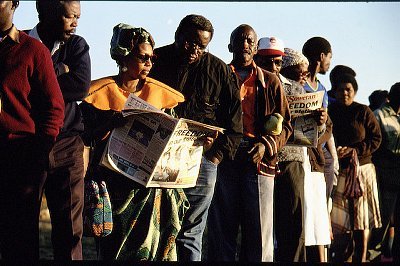Former Israel Chief Rabbi Ovadia Yosef to followers, quoting a traditional Rosh Hashana table blessing before alluding to the resumption of U.S.-brokered Israeli-Palestinian peace talks between Benjamin Netanyahu and Mahmoud Abbas (Abu Mazen):
May our enemies and those who hate us be put to an end, Abu Mazen and all these evil people, may they be made gone from the world. The Holy One, Blessed be He, should smite them with plague, they and these Palestinians, the evil Israel-baiters.
A tradition from the Talmud holds that the things you do to begin a New Year will have a profound effect on the entire year you’re about to have. The foods you eat, how you sleep, and, especially, words spoken in anger.
It says much about our times, that Rabbi Ovadia Yosef, a man who has several times held veto power over the course of peace negotiations, chose just this period and just this tradition, to unlock and unload on the Palestinians.
Much has been said, and rightly so, in condemnation of the remarks, and of the pallid defenses mounted by followers.
However, Rosh Hashanah may be exactly the occasion to learn from Maran HaRav’s’s words, and, no less, his timing.
The run-up to Rosh Hashana is meant to be a month of hard looks at oneself and hard apologies to others. That is where HaRav Ovadia comes in.
His words teach us, before all else, that we should thank the Lord for creating extremists. Because the tight focus of their vision, not to say blindness, often, if unintentionally, shines a light for the rest of us.
HaRav Ovadia’s words remind us that Rosh Hashanah is precisely the time to question our accustomed, unchallenged, most self-satisfied assumptions about ourselves. To reconsider the belief that we were right this year and those who took issue with us, wrong.
Especially this year. History may recall this as the year when Israel’s war posture turned inward, when the most direct and unrelenting threat to the survival of the state as we know it, was a multi-faceted effort, often behind the scenes and funded abroad, to clamp down on human rights for non-Jews and the left within Israel and in the West Bank.
Of late, there has been a mounting tendency within a newly-ascendant rightist intelligentsia — and a shady, gleefully disingenuous, young-ish underground anchored by the vengeful nerds of Im Tirzu — to equate self-criticism with treason, and self-congratulation with patriotism. Not Israel, Right or Wrong, but Israel Is Right, and Europe, the Western World as a whole, the Muslim World, the UN, and Barack Obama are all, sadly, wrong.
The words of Maran HaRav bring us crashing back to the purpose of Rosh Hashonah, which is, at root, dissatisfaction. Rosh Hashanah is a test. It is, as Israelis say of their intimidating high school finals, a bagrut — literally, a coming of age.
So, as adults who owe it to themselves to continue the process of coming of age at any age — which is the same as learning — HaRav Ovadia’s words could inspire us to take a fresh look at the Rosh Hashanah tradition he invoked, and at ourselves.
Guided by that table, and by the marvelous ritual called Simna Milta, or Significant Omens, we can choose, at the dawn of a New Year, the kind of year we set our sights on.
Thanks to a horrible year past and the firm and constant guidance of my teachers Im Tirzu, the Shalem Center, Avigdor Lieberman, Eli Yishai, Michael Ben-Ari, and The NGO Monitor, my resolution for this holiday is to celebrate a New Year of De-Occupation
May good deeds only increase: work toward the lessening of violence and the widening of diplomacy, toward the lessening of settlement and the widening of contacts with Palestinians, toward easing of restrictions on Palestinian civilians and the lifting of persecution over Israeli Bedouin, toward fairness and care for refugees and foreign workers, and a new relationship between the Jewish state and the Muslim world.
These, then, are the blessings and the foods of the Rosh Hashanah mini-seder called Significant Omens. They begin with blessings for the God Who created the fruits of trees and Who renews for us a sweet and new year, blessings over apples and honey.
The following blessings all begin Ye’hi Ratzohn Milfanecha, Adonai Eloheinu V’elohei Avoteinu — May it be Your will, Lord our God and Lord of our ancestors …
Symbol 1: Carrots [a play on the Yiddish word mehren, to increase], or Fenugreek [Hilbe in Arabic, or Rubiyeh in Hebrew], or in the Syrian and Southern U.S. Jewish traditions, Black Eyed Peas.
… She’yirbu zch’uyo’teinu. … Often cryptically translated as “…that our merits increase.” These days, however, it would seem much more fitting to go with a more literal translation, embracing two meanings of the word z’chuyoteinu
“… that the rights of all increase, and our good deeds as well.”
Symbol 2: Leek or cabbage
… Sh’yikartu soneinu – “That those who hate us be cut off.”
In every case of relations with enemies, the traditional wording is ambiguous, suggesting that how we choose to relate to our enemies and those who hate us, and whether we continue to occupy them, could affect whether they remain enemies.
Symbol 3. Beets
… Shyistalku Oy’veinu – “That our enemies be gone.”
Symbol 4. Dates
… Sh’yitamu so’neinu – “That those who hate us be finished.”
Symbol 5. Pumpkin or Gourd
… Sh’yikra g’zar dinenu v’yi’kreh’u L’fanecha Zchuyoteinu
A prayer for the possibility of change, resisting the sense that all is foreordained, and doomed to misery.
“That the harsh verdict of our sentence be torn up, and the rights of all be proclaimed before You.”
Symbol 6. Pomegranate
… Sh’nirbeh zchuyot k’rimon.
“… That rights increase as [the seeds of] a pomegranate.
Symbol 7 – Fish [Vegetarians may choose goldfish crackers or similar stand-ins.]
… Sh’nifreh v’nirbeh k’dagim.
” … That we grow and increase and flourish like fish.”
Symbol 8 – Head of a fish [Substitution: Garlic]
The blessing that can affect all the others:
… Sh’niyeh l’rohsh v’loh l’zanav.
” … that we should be like the head and not like the tail.
Rosh Hashana is at the door. A time for looking at ourselves with fresh honesty, and at others with new compassion. A time of vulnerability, and therefore, in theory, a time of risk, of danger, of weakness. In fact, of course, should we acknowledge it, a time of rare power.
Occupation is the deprivation of rights. The task of Rosh Hashanah is to help us find our way back to a moral path we have lost. That may be why De-Occupation starts at home.
Written for Haaretz.com
Read more: Israeli-Palestinian Conflict, Mahmoud Abbas, Rosh Hashana, Occupation, Haaretz, Peace Talks, Middle East, Israel, Palestine, Bradley Burston, Rabbi Ovadia Yosef, Shas, Middle East Peace, Barack Obama, Religion News



